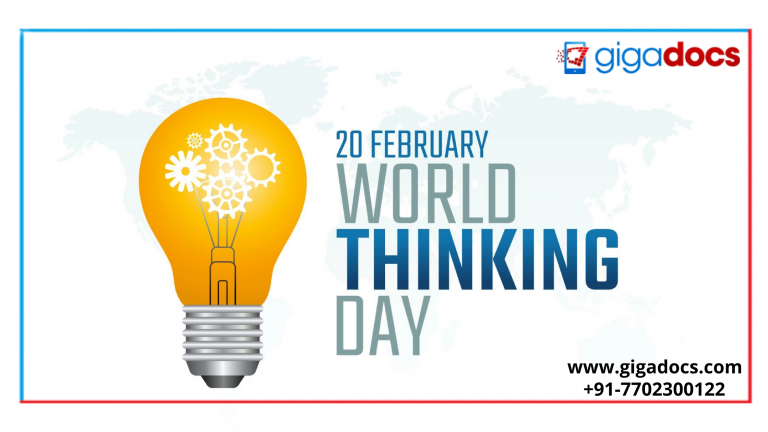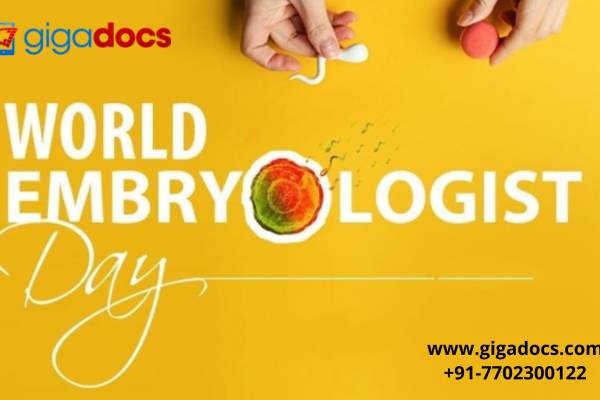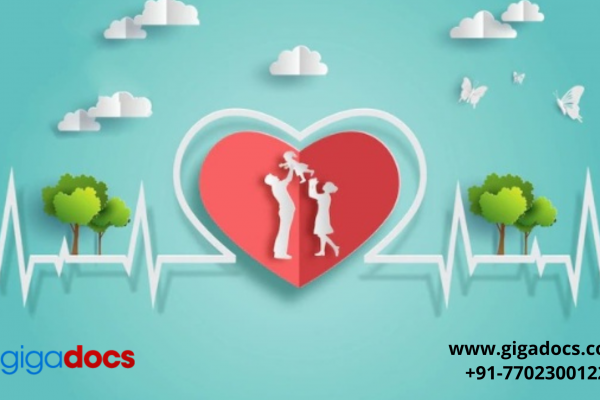“Thinking” is a tiny little word and activity we do every moment, consciously or unconsciously! Ever wondered why we think? The answer is simple: thinking helps us understand and interpret the information we receive and thereby lets us develop strategies to make informed choices.
Thinking is essential to survival, learning, and overall growth and development. This World Thinking Day, we at Gigadocs bring you the problem of overthinking, which can be mentally exhausting. We discuss why we should all think before blindly following things and how we can think to help us to overcome our stress.
This exhaustive post will help you cope with your mental stress and relax. Let’s get started-
Are Mental Stress and Overthinking related?
Mental stress and overthinking are closely related. Overthinking is a common cause of mental stress. Overthinking refers to the tendency to ruminate or dwell on negative thoughts, problems, or events, often to exhaustion. It is often characterized by repetitive thinking, worrying, and analyzing cycles, leading to anxiety and stress.
- When we overthink, we often create hypothetical scenarios that are unlikely to happen or blow things out of proportion, leading to unnecessary worry and stress.
- The more we overthink, the more stressed and anxious we become, impacting our mental health and well-being.
- Overthinking can be triggered by various factors, such as fear of failure, low self-esteem, or a lack of control over one’s circumstances.
- Chronic overthinking can lead to depression, insomnia, and other mental health issues.
- To break the cycle of overthinking and reduce mental stress, we can practice mindfulness, engage in relaxation techniques such as deep breathing or meditation, and seek support from a mental health professional on the Gigadocs app.
Have we adapted to blind thinking, especially after Lockdown?
It’s important to note that not all humans blindly follow without researching for facts, and it’s unfair to make sweeping generalizations about any group of people. However, some individuals may be more susceptible to believing and following information without verifying its accuracy.
- One reason for this is the availability of information overload in today’s digital age. With so much information at our fingertips, it can be overwhelming to sort through and verify every piece of information.
- Confirmation bias can also play a role, as individuals who overthink may be more likely to believe information that confirms their pre-existing beliefs and values.
The Role of Covid-19
The COVID-19 pandemic has also created a lot of uncertainty and anxiety, making individuals more vulnerable to misinformation and conspiracy theories. Some may turn to social media or other sources for information without realizing that not all sources are credible.
However, it’s important to remember that critical thinking and research skills are essential for making informed decisions and separating fact from fiction. We can adapt by developing critical thinking skills, verifying information from multiple sources, and fact-checking before sharing information. It’s also essential to seek out credible sources of information, such as reputable news outlets and government agencies, and to be mindful of our biases and emotions when evaluating information.
Developing our Imagination for Thinking-
Having our imagination and thinking is important; we discuss why in the segment below-
- Creativity: Imagination is the foundation of creativity. When we imagine and think for ourselves, we can come up with new ideas, perspectives, and solutions that we may not have otherwise considered.
- Independence: When we think for ourselves, we can develop opinions and make decisions based on our values and beliefs rather than simply following the crowd, leading to greater independence and self-confidence.
- Personal growth: When we engage in our thinking and imagination, we can learn more about ourselves, our strengths, and our weaknesses. This can help us grow as individuals and develop greater self-awareness.
- Empowerment: Thinking for ourselves can be empowering, as it allows us to take control of our lives and shape our futures. When we rely too heavily on the opinions of others, we may feel powerless or directionless.
- Making informed decisions: Thinking for ourselves allows us to evaluate information critically rather than simply accepting it without any questions being asked. This can help us to identify false or misleading information, make informed decisions, and solve problems.
How Thinking can keep us Alert?
Thinking critically and engaging in basic research can help us to distinguish between true and false facts and opinions. The right frame of thinking can keep our brain healthy, we analyze and discuss why-
- Helps our brain to evaluate: Basic research involves evaluating the credibility of sources. When we come across news or information, we should assess the reliability of the source and look for corroborating evidence. We can ask questions like: Who is the source? Is it a reputable news outlet or an unknown source? What is the evidence behind the claims being made? All these questions help our brains to think and evaluate.
- Considering bias: We should also consider the potential bias of the source or author. We can ask questions like: What is the author’s perspective or agenda? Is there any political or commercial influence behind the information being presented?
By engaging in these critical questions, we can develop a better understanding of what is true and what is false and the origination of information. This can help us to make informed decisions, avoid misinformation, and be better equipped to navigate a complex and rapidly changing media landscape.
How Thinking can help cope with Stressful Situations?
Taking a moment to think can be very beneficial, especially in stressful situations. Here are some ways in which a moment of thinking can help:
- Finding solutions: By taking a moment to think, we can brainstorm potential solutions to address the problem, which can help us identify new ideas and approaches that we may not have considered.
- Reducing impulsivity: In stressful situations, we may be more likely to act impulsively or make decisions based on emotion rather than logic. Taking a moment to think can help us to pause and reflect on the situation, reducing impulsivity and allowing us to make more rational decisions.
- Gaining perspective: When we are in a stressful situation, it can be challenging to see the bigger picture. Taking a moment to think can help us gain perspective and consider the situation more objectively.
- Avoiding mistakes: In stressful situations, we may be more prone to making mistakes or overlooking important details. Taking a moment to think can help us avoid mistakes and ensure we are making informed decisions.
- Managing emotions: Stressful situations can be emotionally charged, and taking a moment to think can help us to manage our emotions more effectively by pausing and taking a deep breath.
Overall, taking a moment to think can help us to manage stress more effectively, make better decisions, and navigate challenging situations with greater ease.
Taking a Step back to Think
Taking a step back to think can be very helpful in putting things into perspective and making informed decisions. Here are some ways you can follow:
- Evaluating options: Taking a step back can help us to assess our options more effectively. Considering all available options and weighing their pros and cons will assist us in making a more informed decision based on logic and reason rather than emotion.
- Removing emotions: When caught up in a situation, our emotions can cloud our judgment and lead us to make decisions, not in our best interest. Taking a step back can help us remove ourselves from the emotional intensity of the situation and approach it more objectively.
- Seeing the bigger picture: When we are in a tough situation, it can be challenging to see the bigger picture. Taking a step back can help us gain perspective and consider the problem from a broader viewpoint, which can help us identify potential consequences and make decisions more aligned with our long-term goals.
Mental Health and Gigadocs Telehealthcare
Mental stress is a common issue many individuals face, and it can be evident in several ways, including anxiety, depression, and burnout. Telehealth can be an effective way to address mental stress. Gigadocs leverages Telehealth and telecommunication technologies, like video conferencing, to provide healthcare services remotely.
Telehealth can help patients by increasing accessibility, reducing stigma, and ensuring continued care. However, it’s important to note that Telehealth is not a substitute for in-person care when necessary. Individuals should work with healthcare professionals to determine the best course of treatment for their specific needs. To know more about how can Telehealth provide quality healthcare for you,
Download the Gigadocs app from-
- IOS App – apple.co/2W2iG4V
- Android App – bit.ly/33AQoRC
To know more e-mail, at info@gigadocs.com




